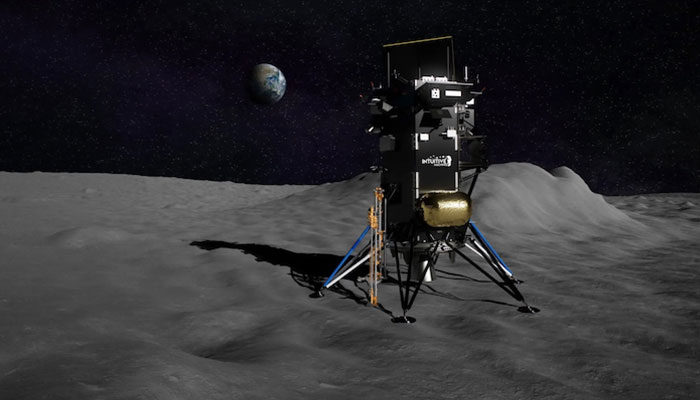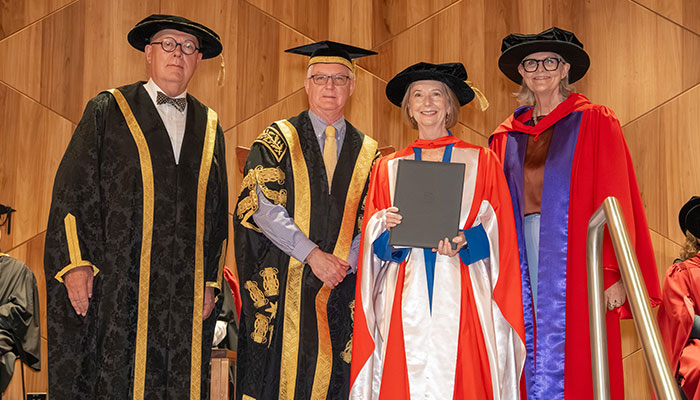- ERA ratings show all assessed Macquarie University research deemed world class and above at a 2-digit code level
- Macquarie achieved a stunning 50 per cent increase in areas of research rated 5 at the 4-digit level
Macquarie University’s Excellence in Research for Australia (ERA) ratings announced today show the University’s innovative approach to research continues to deliver world-leading research with world-changing impact.
(For Macquarie’s results in the report of the Australian Research Council’s 2018 Engagement and Impact Assessment please click here).
The results include the addition of Biological Sciences to the suite of Macquarie research areas rated as well above world standard with Physical Sciences, Environmental Sciences and Agricultural & Veterinary Sciences maintaining the ERA 5 rating they achieved in 2015 with Physical Sciences and Environmental Sciences having now been rated as well above world standard in ERA 2010, ERA 2012, ERA 2015 and ERA 2018.
At the 4-digit level, Macquarie increased its areas of research rated at Outstanding Performance Well Above World Standard from 14 to 21 – an increase of 50 per cent. This includes three areas that Macquarie submitted in for the first time – Macromolecular & Materials Chemistry, Materials Engineering, and Horticultural Production with the latter area of research excellence recently receiving a $2.5m NSW Government grant to establish a biofoundry in synthetic biology.
Macquarie University’s focus on research excellence has paid off in a number of areas at the 2 and 4-digit level including Biological Sciences, Chemical Sciences, Information and Computing Sciences, Engineering, Zoology, Philosophy, Ecological Applications, Banking, Finance & Investment, Anthropology and Sociology where the quality rating has increased between ERA 2015 and ERA 2018.
Macquarie University is particularly pleased that areas that have been the focus of long term strategic investment such as Medicine, Engineering, Computing and Education have performed exceedingly well. Outstanding results for research in areas such as Clinical Sciences, Neuroscience, Oncology & Carcinogenesis and Cardiovascular Medicine & Haematology underpin MQ Health – a fully integrated university-led health sciences centre, combining excellence in clinical care with teaching and research. World-leading research in Linguistics, Biomedical Engineering, Psychology and Communication support Macquarie’s unique MQ Hearing strategy while research in Genetics, Plant Biology, Neurosciences, Applied Ethics, Horticultural Production, Analytical Chemistry, Microbiology and Medicinal & Biomolecular Chemistry provide strong foundations for Macquarie’s rapidly emerging strength in BioInnovation.
Engineering, Philosophy, Educational Studies, Banking and Finance, Clinical Sciences and Neurosciences also rated strongly.
Highlights of Macquarie’s 2018 ERA results:
- 100 per cent of research rated at world standard and above at the 2-digit level
- 50 per cent increase in research rated at 5 at the 4-digit level
- Macquarie has maintained consistently excellent performance in Physical Sciences and Environmental Sciences, achieving the highest ERA ratings for these areas in 2010, 2012, 2015 and 2018
Deputy Vice-Chancellor (Research), Professor Sakkie Pretorius said the ERA ratings are a vital indicator of Australia’s research performance and also shows that taking a collaborative and cross-faculty approach sets the standard for university research in Australia.
“The latest ERA ratings show that Macquarie’s research excellence is going from strength to strength and is world-leading. Macquarie’s strategic investment in, and focus on, quality and innovation has strengthened established research areas and launched emerging research areas that enable us to undertake this world-leading research with world-changing impact for the betterment of humankind, our societies, economies, and the environment.
“Macquarie’s many research strengths – from biological, environmental and clinical sciences, philosophy, physics, agriculture, applied ethics, neuroscience, linguistics, pure mathematics, computing, finance and engineering to genetics, optical physics, environmental management and ecology – will do much to address some of the most pressing global issues including food security, climate change, hearing loss, chronic diseases and medical ethics,” Professor Pretorius said.
The Vice-Chancellor, Professor S Bruce Dowton congratulated Macquarie researchers and research support staff: “This success is one acknowledgement for the fierce determination to produce the very best research. Macquarie’s purposeful commitment to increasing the scale and depth of excellence in the research we conduct is demonstrated in our impressive results. The impact of this work changes the way people live their lives and the kind of world we leave to future generations.”
| Macquarie 4-digit 5s | Macquarie 2-digit 5s |
| 0101 Pure Mathematics 0201 Astronomical and Space Sciences 0205 Optical Physics 0301 Analytical Chemistry 0303 Macromolecular and Materials Chemistry 0401 Atmospheric Sciences 0501 Ecological Applications 0502 Environmental Science and Management 0602 Ecology 0603 Evolutionary Biology 0604 Genetics 0607 Plant Biology 0608 Zoology 0706 Horticultural Production 0802 Computation Theory and Mathematics 0906 Electrical and Electronic Engineering 0912 Materials Engineering 1103 Clinical Sciences 1109 Neurosciences 1112 Oncology and Carcinogenesis 2203 Philosophy | 02 Physical Sciences 05 Environmental Sciences 06 Biological Sciences 07 Agricultural and Veterinary Sciences |
Excellence in Research for Australia (ERA) is a federal government initiative that evaluates the quality of research being conducted by Australia’s higher education institutions. Research quality is evaluated in groups defined by 2-digit and 4-digit Field of Research (FoR) codes. The final report of the University’s research quality rates the performance in each FoR code against a world standard, using a scale of 1 to 5.



